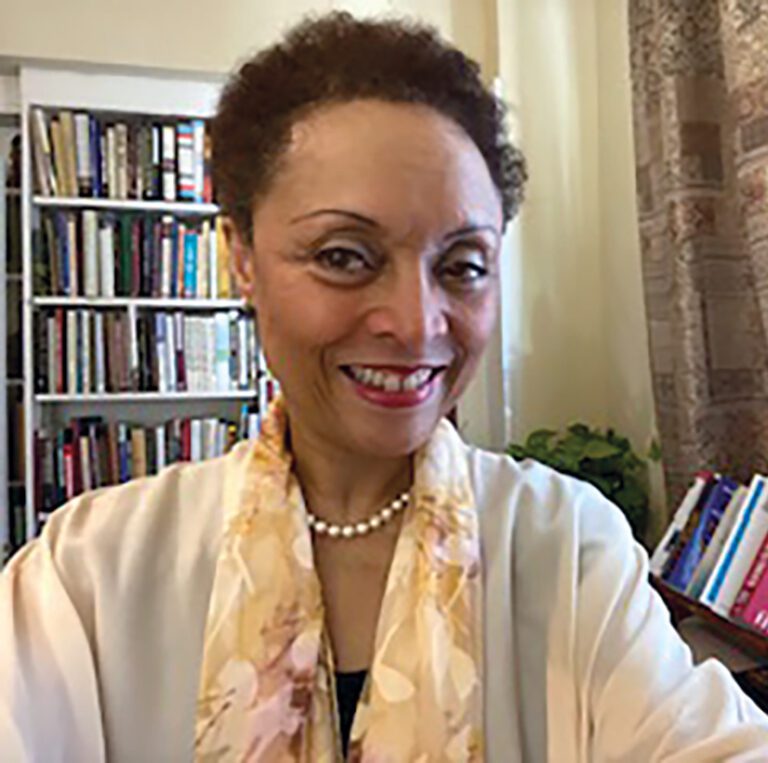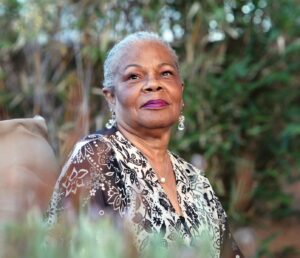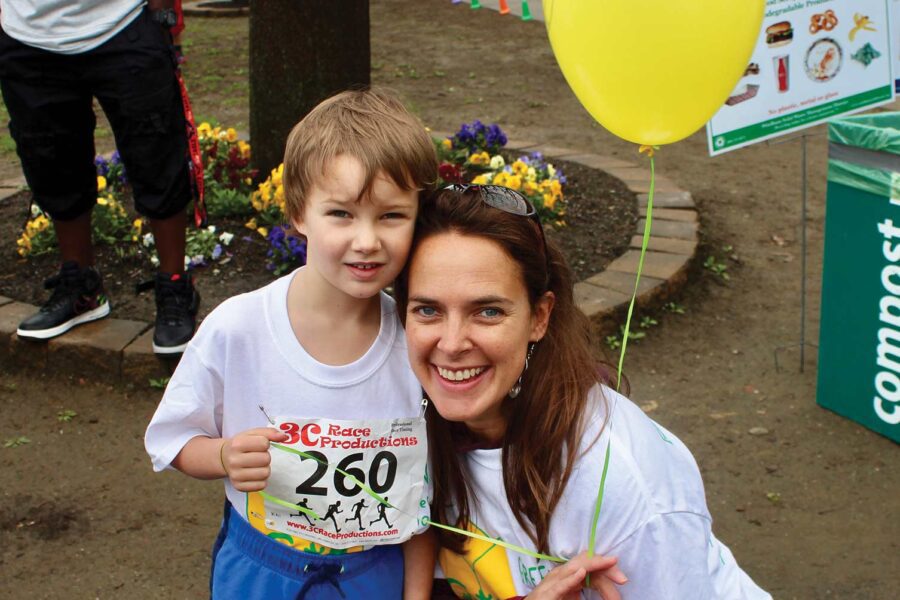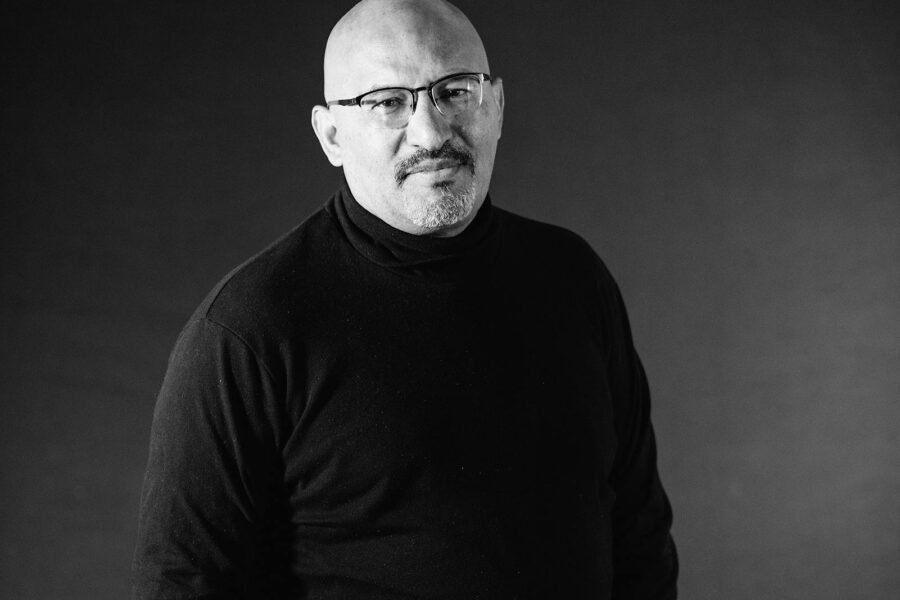Dr. Naomi Nightingale ’85, ’14 (Antioch Los Angeles, BA and GSLC, PhD) already had a flourishing career when she decided to go to college. She had co-founded Project Action, a community organization that helped young adults prepare for jobs, was Chief Deputy of District Operations for California State Senator Diane E. Watson, and was Director of Project New Focus, a Department of Labor-funded re-entry and training program for women with criminal backgrounds. She had come a long way just on the strength of her native wit and hard work, but she could see that if she wanted to go further, she needed a college education.

“I couldn’t have gotten my next jobs without a degree,” she says. “And the diploma enabled me to convince elected officials to take me seriously. But it wasn’t just the credential; the theory helped me make sense of the social-justice movement. What I’d been doing was really from the heart, but to be able to put that together with theories and research from different perspectives—that was an ‘Ah ha!’ moment for me.”
When it came to choosing a school, Antioch’s Los Angeles campus made the most sense. Not only did it schedule classes to accommodate working adults, but it also made an active effort to connect a student’s studies and work-life so that one illuminated the other. Nightingale got her BA there, and a few years later she earned an MPA from Cal-State Long Beach. To bring the highest level of knowledge and service to her professional career and to her work as a social justice advocate, Nightingale realized she needed a PhD, so she turned to Antioch once again. She enrolled in the school’s doctoral program in Leadership and Change.
This was 2006, and things did not begin well. As she was unpacking her car the luggage cart started rolling away. She ran and grabbed it, and the cart swung around and broke her ankle. She spent the night in the emergency room and arrived for the first day of classes in Yellow Springs, Ohio, on crutches.
“When I first met Naomi,” remembers fellow arriving student Dr. Janet Dewart Bell ’74, ’15 (Antioch Maryland, BA and GSLC, PhD), “I was so impressed. She had this big smile on her face like nothing was going to stop her from doing what she had come to do. I said, ‘Oh, my, she has the spirit my mother has.’”
Bell was also in mid-career, having already won an Emmy Award with the CBS-TV affiliate in Washington, DC, and a Peabody Award with National Public Radio. She too earned her BA at Antioch—in her case at the Maryland campus—an Executive Master’s Degree in Public Administration from Baruch College, and was coming back to Antioch to get a PhD.
Bell and Nightingale are the same age (they both turn 74 this fall), and they share a commitment to the struggle for social justice. They were friends from the first. Soon they joined a small “study group” that spent some time discussing the substance of the courses but more time discussing the process of getting through a challenging doctoral program while keeping their careers and families afloat.
“We need to talk about race in order to move beyond this debilitating social construct. Doing so takes work and vigilance. In this pivotal moment in the life of America, we cannot let the gargoyles of white supremacy try to define who is or is not Black. That Black people—African Americans—are discussing these issues is understandable, although difficult and painful. However, it is disingenuous and outrageous that some conservative commentators are trying to stir doubt and resentment of those whose legacy is something other than two Black parents descended from enslaved Africans—just another in their playbook of racial dog whistles and pathetic attempts to divide and conquer people of color and confuse our white allies. We must not be hoodwinked by their faux concern and outrage. SNCC veteran Judy Richardson, the series associate producer for Eyes on the Prize, reminds us not to go for the ‘okey-doke.’ In other words, don’t get played. Let me say it plain: Ari Fleischer, Dinesh D’Souza, and Ann Coulter have no standing or right to say who is or is not Black or African American.”
Bell, a 2019 NAACP Image Award Nominee, recently published Black Like Me, an essay on not allowing white supremacy to define who is or is not Black.
(Excerpt courtesy of Bell and the Women’s Media Center. Read the full article)
“There was no set agenda,” Bell explains. “We’d talk about what we were working on, but the main purpose was to hold each other up and make us accountable to ourselves, to help us set personal goals and then make sure we met them.”
“It was morale building,” Nightingale adds. “It helped me to know that I had people pushing me along. It’s easy to tell yourself, ‘I don’t feel like working on it today,’ but if you know your study group is expecting you to finish, you’re more likely to do it. That axiom, ‘We’re not free till we’re all free,’ can be applied to graduate school: ‘We’re not done till we’re all done.’”
“It’s true,” Bell continues. “When I was having trouble finishing my dissertation, Naomi got on a plane and came to New York. I didn’t ask her to, but this is the way she is. She took up residence in my apartment, and every time I got up to do something, she said, ‘Get your butt back in the chair.’ When she left after a week, I was exhausted, but I had accomplished so much.”
As with many of her cohort mates, life got in the way. Bell’s beloved husband Derrick Bell, famed Harvard professor and civil rights lawyer, lost his decade-long battle with carcinoid cancer.
“He had spoken at one of our program residencies and was very much an enthusiastic supporter of me and Antioch,” Bell says. “I hit a wall, but Naomi’s fierce friendship and that of my other study group members helped me cross the finish line.”

When Bell’s dissertation was finished, it evolved into a book, Lighting the Fires of Freedom: African American Women in the Civil Rights Movement (The New Press), which won the 2018 Studs and Ida Terkel Prize.
“Of the nine women I wrote about,” Bell points out, “seven would not refer to themselves as leaders. They talked about their commitment to others, a call to serve. People always ask, ‘How do you know you’re a leader?’ Martin Luther King didn’t necessarily decide to be a leader. He was called to be one. If you have something to contribute, the community will lift you up.”
“There’s an advantage to studying leadership the way we did at Antioch,” Nightingale adds. “When you’re conscious about leadership, it’s purposeful, and when it’s purposeful, it’s more directed, more strategic, and that helps you reach your goal. If you know the theory, you can reevaluate and adjust your leadership, so your trajectory doesn’t go somewhere else.”
The two women are so convinced of the value of leadership studies that they have been co-teaching a course on “Leadership and Strategy in Public Affairs” at Baruch College every summer since 2017. As part of the City University of New York, Baruch College is devoted to providing affordable, high-quality education to a diverse student population. As a result, Nightingale and Bell have found themselves teaching many mid-career students, not unlike who they were when they started at Antioch.
“Antioch had disabused us of the ‘Great Person’ theory of leadership,” says Bell, who has served as Director for Communications for the National Urban League. “And we pass that on to our students at Baruch. Our notion of leadership is more comprehensive: it can occur at many levels, in many contexts.”
“When you can influence the behavior and beliefs of another person,” adds Nightingale, who was elected to Vice President of the Grassroots Venice Neighborhood Council, “that’s being a leader. Sometimes people don’t understand their abilities as a leader. If you can help them understand that, it helps them grow and increases their ability to do their work. That happened to me: I didn’t set out to be a leader, but that was what the community required, so I did it—and then I worked to get better at it.”
“Our PhD program had such a rigorous curriculum, it gave us the authenticity and the confidence to explore what leadership means and what it looks like,” says Bell. “Now, it’s a model for other programs, including our course at Baruch.”
SOUL SOURCE LEADERSHIP
Naomi Nightingale
The call of Leadership
is a sound you hear from far deeper
than the voice that speaks inside your head.
The call is felt
deep down and through your bones
from the place where messages unfold to the soul
the keeper of who you were sent here to be.
It is from that place that those messages,
your calling,
come forth, up to and through your bones
seeking to speak to your heart
and bringing along
from soul to heart to mind
the mandate to act.
You cannot help but act,
it is what leaders do.
July 20, 2008
Nightingale began writing poetry when she was seven years old. She was inspired to write “Soul Source Leadership” as she reflected on the question posed by an Antioch professor asking whether leaders were born or trained.


